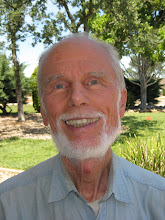The Secularism that came to dominate public life in the United States and Western Europe in the 20th Century excluded religion from the public square and claimed that only the methods of science offered verifiable knowledge for questions of public policy. But this attitude is Scientism, not science, and is subject to the same philosophical critique that demolished Logical Positivism: The empirical methods of science cannot verify the claim that these methods are the only source of truth.
Indeed, in Conjectures and Refutations, Karl Popper showed that the limitations of inductive logic guarantee that empirical science cannot verify its theories about reality and therefore makes fundamental progress only by experiments that falsify an existing theory. Nevertheless, unlike Niels Bohr and Werner Heisenberg, Popper was not an instrumentalist denying the possibility of relating the equations of science to underlying realities. He agreed with Einstein that the purpose of science was to discover such truth about reality and that it may well do so. But certainly when it comes to the microcosm and the macrocosm, it is impossible ever to verify a theory based on empirical data. Thus, a proper philosophy of science puts appropriate limitations on the claims to be made for it. Nevertheless, science remains a means to discover truth about some kinds of reality.
I believe that literature, history, philosophy, and revelation as well as science are all valid ways of exploring and learning knowledge about different aspects of reality. Thus, I affirm all of these ways of knowing. My interests are primarily in literature, theology and philosophy, but science impinges on these in its study of the macrocosm in Astronomy and Cosmology and in its study of the microcosm in Quantum Mechanics. So all of these subjects will be on the table for this blog.
Tuesday, December 4, 2007
Is there more than one way to discover truth?
Subscribe to:
Post Comments (Atom)

No comments:
Post a Comment